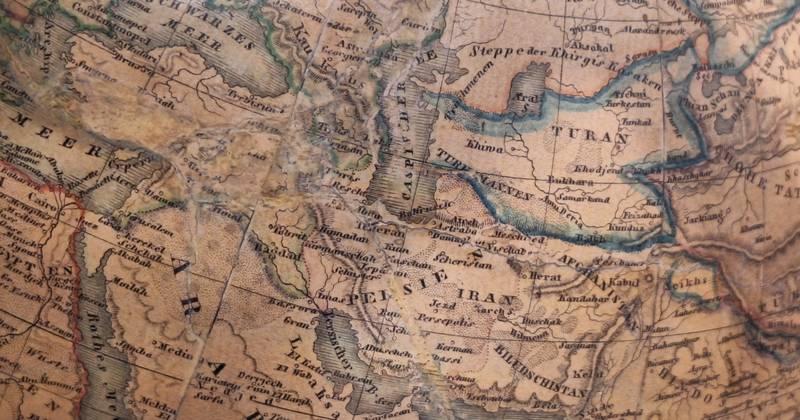A Symbol of Knowledge, Struggle, and the Consciousness of the Ummah
Imam Muhammad Zahid al-Kawthari [rahmatullahi alayh] was born on September 16, 1879, in a small village near Düzce. His father, Hasan Hilmi Efendi, was a respected scholar known for both his learning and piety. From an early age, the young Zahid displayed a deep interest in the religious sciences. Under his father’s tutelage, he memorized the Qur’an, learned the fundamentals of faith, and studied Arabic.
His childhood coincided with one of the most turbulent periods of the Ottoman Empire—an age marked by political upheaval, wars, debates on modernization, and a gradual weakening of religious life. Yet in this difficult climate, Zahid al-Kawthari grew up with a mind both alert and a heart steadfast in faith.
After completing his early education, his passion for knowledge drew him to Istanbul. There he studied in some of the most esteemed madrasas of the time. His brilliance became especially evident at the Fatih Madrasa, where his scholarly excellence caught the attention of his teachers. Before long, he was no longer merely a student—he had become a mudarris , a teacher who trained others in the pursuit of sacred knowledge.
A Mind Deeply Rooted in Knowledge
Imam al-Kawthari mastered nearly every branch of the classical Islamic sciences: jurisprudence, hadith, theology, Sufism, logic, methodology, and history. Yet what set him apart was not only his command of these disciplines, but his ability to apply them to the pressing intellectual and social issues of his age.
While serving in Istanbul—particularly through his lectures at the Fatih Mosque—he trained a generation of students who were captivated not only by his depth of learning, but by his modesty, dignity, and serenity. He was a scholar who lived what he taught.
Balance was at the heart of his intellectual vision. He rejected blind imitation, yet equally opposed the reckless abandonment of centuries of accumulated scholarship. For him, renewal meant not breaking from tradition, but reviving it in harmony with its authentic roots. This perspective illuminated both the legacy of the past and the path toward the future.
Resisting Through Knowledge in Difficult Times
Perhaps the most striking aspect of al-Kawthari’s life was his unwavering devotion to his faith amid adversity. During the final years of the Ottoman Empire, religious education and the madrasas came under severe criticism. New ideological movements sought to undermine the foundations of Islam. Al-Kawthari took up his pen and fought back—defending truth through scholarship.
He openly criticized the misguided policies of the Committee of Union and Progress. For this, he was dismissed from his official posts and even faced the threat of imprisonment. Realizing that remaining in Turkey would hinder his work for knowledge, he made the difficult decision to emigrate.
He first went to Syria, then to Egypt, where he spent the rest of his life. Though in his later years, his intellect remained as sharp as ever. In Cairo, he became a highly respected figure within the scholarly circles of al-Azhar. Around him gathered students eager to learn from his vast knowledge and spiritual depth. The works he produced during this period became enduring symbols of the intellectual resilience of both the Ottoman tradition and the broader Islamic world.
The Fortress of Knowledge Built by His Pen
Imam al-Kawthari was not only a teacher but also a prolific author. Throughout his life, he wrote numerous works that continue to shape Islamic scholarship. Among his most renowned writings are:
- Te’nīb al-Khatīb (تأنيب الخطيب) – A masterpiece in which he refuted, with strong evidence and clarity, the unfounded criticisms directed at Imam Abu Hanifa .
- Fiqh Ahl al-‘Iraq wa Hadīthuhum (فقه العراق و حديثهم) – A study elucidating the approach of the Iraqi jurists to hadith, exploring the harmony between jurisprudence and prophetic tradition.
- Irghām al-Marīd (إرغام المريد) – A work on Sufism that includes biographical sketches of thirty-three awliya from Transoxiana affiliated with the Naqshbandi order, alongside his own biography.
- Maqālāt al-Kawtharī (مقالات الكوثري) – A collection of his essays on various theological, historical, and juristic issues.
In all his writings, al-Kawthari did more than defend a particular school of thought; he safeguarded the integrity and unity of Islam itself. To him, knowledge was never a tool for division, but for harmony.
His prose was refined and his tone dignified. Even when refuting others, he did so without insult—his arguments calm yet irrefutable. Through his manner, he demonstrated that true scholarship must always be accompanied by character and adab.
His Students and His Lasting Influence
During his years in Egypt, Imam al-Kawthari trained many students, several of whom would later become leading scholars of the Muslim world. Among them were Ali Ulvi Kurucu, Abd al-Fattah Abu Ghudda, and Mehmed Ihsan Efendi—names that carried his intellectual legacy into future generations.
His students often described him not merely as a scholar but as a living embodiment of virtue. He viewed knowledge as a divine gift that refined the human soul. For him, scholarship sought for fame or argument’s sake was hollow and fruitless.
Until his final days, he continued to write, teach, and engage with the concerns of the Muslim ummah. When he passed away on August 11, 1952, in Cairo, he left behind not only a library of profound works but also a luminous example of integrity and devotion. His grave remains a place of visitation for those who admire his legacy.
AUTHOR
Abdurrahman Hakan Pakiş



